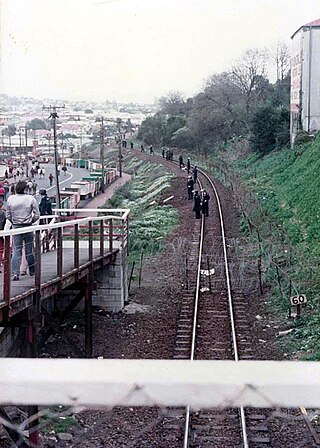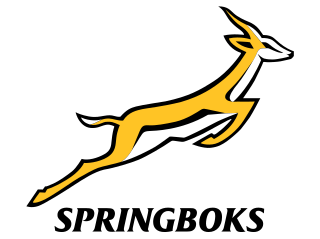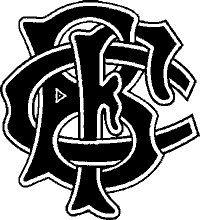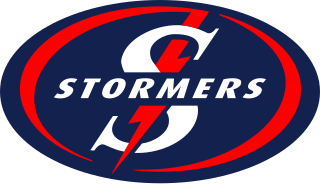Related Research Articles

The British & Irish Lions is a rugby union team selected from players eligible for the national teams of England, Ireland, Scotland, and Wales. The Lions are a test side and most often select players who have already played for their national team, although they can pick uncapped players who are eligible for any of the four unions. The team tours every four years, with these rotating between Australia, New Zealand and South Africa in order. The most recent test series, the 2021 series against South Africa, was won 2–1 by South Africa.

The New Zealand national rugby union team, commonly known as the All Blacks, represents New Zealand in men's international rugby union, which is considered the country's national sport. Famed for their international success, the All Blacks have often been regarded as one of the most successful sports teams in history.

The 1981 South African rugby tour polarised opinions and inspired widespread protests across New Zealand. The controversy also extended to the United States, where the South African rugby team continued their tour after departing New Zealand.

The South Africa national rugby union team, commonly known as the Springboks, is the country's national team governed by the South African Rugby Union. The Springboks play in green and gold jerseys with white shorts, and their emblem is the Springbok, a native antelope and the national animal of South Africa. The team has represented South African Rugby Union in international rugby union since 30 July 1891, when they played their first test match against a British Isles touring team. Currently, the Springboks are the reigning World Champions, having won the World Cup a record four times. South Africa are the only team to have won half of the Rugby World Cups they have participated in, and are also the second nation to win the World Cup consecutively.

The Barbarian Football Club, known as the Barbarians, is a British-based invitational rugby union club. The Barbarians play in black and white hoops, though players wear socks from their own club strip. Membership is by invitation. As of 2011, players from 31 countries had played for them. Traditionally at least one uncapped player is selected for each match.

The Stormers is a South African professional rugby union team based in Cape Town in the Western Cape that competes in the United Rugby Championship, a trans-hemispheric competition that also involves sides from Ireland, Italy, Scotland and Wales. They competed in the Super Rugby competition until 2020. They have won one major international championship, the 2021-22 United Rugby Championship, and seven South African 'conference' titles, five in the South African Conference of Super Rugby, and two in the URC equivalent, the South African Shield.
The 1997 British Lions tour to South Africa was a series of matches played by the British Lions rugby union team in South Africa. This tour followed the Lions' 1993 tour to New Zealand and preceded their 2001 tour to Australia. The much-anticipated tour was the first after the end of apartheid in South Africa, and the first Lions tour since rugby union turned professional. It was only the third time that a touring side had won a test series in South Africa; the others being the 1974 Lions and the 1996 All Blacks.

Ellis Park Stadium is a rugby union and association football stadium in Johannesburg, Gauteng Province, South Africa. It hosted the final of the 1995 Rugby World Cup, which was won by the country's national team, the Springboks. The stadium was the country's most modern when it was upgraded in 1982 to accommodate almost 60,000 people. Today, the stadium hosts both football and rugby and is also used as a venue for other large events, such as open-air concerts. It has become synonymous with rugby as the only time when rugby was not played at Ellis Park was during 1980 and 1981, when the stadium was under construction during the upgrade.

Western Province is a South African professional rugby union team based in Newlands, Cape Town, that participates in the annual Currie Cup and Vodacom Cup tournaments. Founded in 1883, the team has won multiple titles, a record of 34 Currie Cup titles including the inaugural competition, the Vodacom Cup, the Absa Nite Series, and the Lion Cup.

Rugby union in South Africa is a highly popular team sport, along with cricket and soccer, and is widely played all over the country. The national team is among the strongest in the world and has been ranked in at least the top seven of the World Rugby Rankings since its inception in 2003. The country hosted and won the 1995 Rugby World Cup, and won again in 2007, 2019 and 2023.

The Kenya national rugby union team, commonly known as the Simbas, is the country's national team managed by the Kenya Rugby Union. The team plays in red, green, and black jerseys with black or white shorts. The Simbas represent Kenya in the Africa Cup and various other tournaments across the continent. They currently rank 34 in the World Rugby Rankings and fourth in Africa. Kenya is yet to qualify for the Rugby World Cup.
Errol George Tobias is a former South African rugby union player, and the first player of colour to play in a test match for the South African national side. He gained six caps between 1981 and 1984 when the country was still following the policy of apartheid. Tobias's selection paved the way for other black players to be added to the national team: first Avril Williams, and later, Avril's nephew, Chester Williams. Of his 21 games for the Springboks, six were tests.
The 2009 Absa Currie Cup Premier Division season was the 71st season in the competition since it started in 1889. The competition was contested from 10 July through to 31 October.

Nedbank Cup is a South African club football (soccer) tournament. The knockout tournament, based on the English FA Cup format, carries a 'David versus Goliath' theme. The competition was sponsored by ABSA until 2007, after which Nedbank took over sponsorship.
Jan Hendrik Ellis was a South African rugby union player who represented the Springboks in 38 tests, which at his retirement in 1976 was a record. His 7 test tries equalled Ferdie Bergh's record for forwards and were only surpassed in 1997 by Mark Andrews' 12 tries. Playing on the flank, Ellis was instantly recognisable on the field due to his red hair and uncompromising playing style. Among three Springboks invited to participate in the first unofficial rugby sevens world cup in 1973, he was ranked in 2003 as the 12th greatest Springbok of all time.
Sydney Nomis was a South African national rugby union player who until 2001 held the record for most consecutive matches (25) played for the Springboks. Nomis is best remembered for tries that he scored against France in 1968 and the All Blacks in 1970.
The Proteas was the representative side of the South African Rugby Football Federation, one of three racially segregated rugby union governing bodies in apartheid South Africa.
The Leopards were the South African African Rugby Board's representative side, which governed black rugby in apartheid South Africa. The team's name was reflected in the eponymous emblem that was worn on their rugby shirts.

Rugby union and apartheid had a complex and supportive relationship. From 1948 to 1994, international rugby relations with the country, and also the non-integrated nature of rugby within South Africa drew frequent controversy. South Africa remained a member of the International Rugby Board (IRB) throughout the apartheid era.
The History of the South Africa national rugby union team dates back to 1891, when the British Lions first toured South Africa where they played against South African representative sides. The South Africa national rugby union team played few international matches during a period of international sanctions due to apartheid. Since the end of apartheid in 1994, South Africa has once again fully participated in international rugby.
References
- ↑ Khotha, Meshack (2 February 2009). "Uitenhage golf day a huge hit". The Sowetan. Retrieved 26 December 2011.
- ↑ "Lions 2009: Greatest tours often fired by poor starts". The Daily Telegraph. London. 29 May 2009.
- 1 2 3 4 Heenop, Albert (16 June 2009). "Legends of the Eastern Cape". SA Rugby. Retrieved 26 December 2011.
- ↑ Gallagher, Brendan (29 May 2009). "Lions 2009: Greatest Tours Often Fired by Poor Sarts". The Telegraph. Retrieved 26 December 2011.
- ↑ Griffiths, John. "The First Official Multi-Race [sic] Team in SA, MPs with International Honours and Varsity Blues". ESPNscrum. Retrieved 20 December 2011.
- ↑ McLook (10 October 2010). "1976 All Black-tour – Fourth tour match". The McLook Rugby Collection. Retrieved 26 December 2011.
- ↑ "31 Aug 76 – Leopards 0 / All Blacks 31". The McLook Rugby Collection. Retrieved 26 December 2011.
- ↑ "Club Rugby Round-up – Special milestones for Swallows and Universal". 19 April 2011. Retrieved 25 January 2013.[ dead link ]
- ↑ "Eye of the Tiger Rugby Academy looses a great ambassador of the game, Morgan Cushe | Grassroots Rugby".